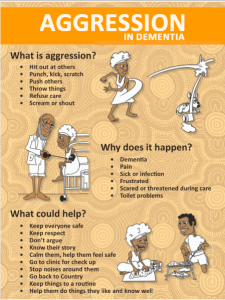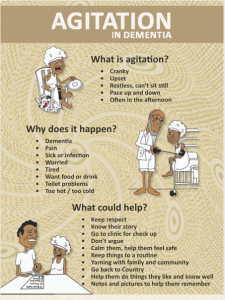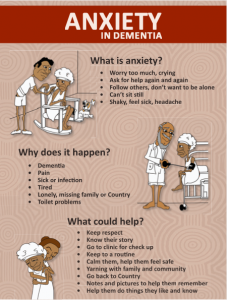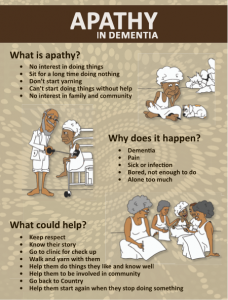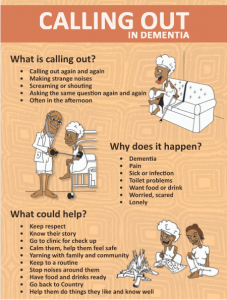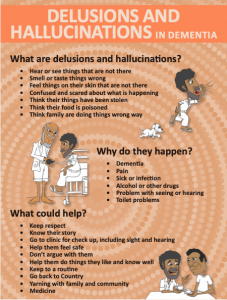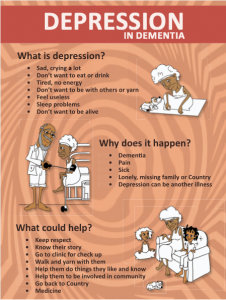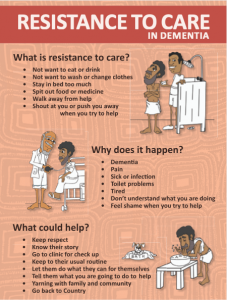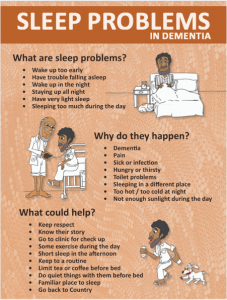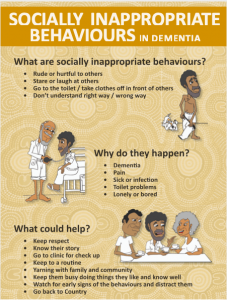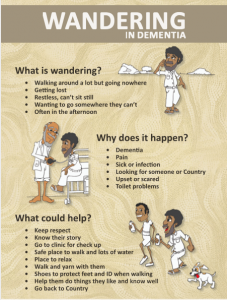A culturally appropriate resource for professionals and health workers supporting people with dementia in Aboriginal communities in remote areas of Australia
This set of posters for remote Aboriginal communities is based on the principles outlined in the document Behaviour Management – A Guide to Good Practice, Managing Behavioural and Psychological Symptoms of Dementia (BPSD)*. The posters were developed in collaboration with the Dementia Behaviour Management Advisory Service, Northern Territory (DBMAS NT) and other expert clinicians. This project was funded by a DCRC KT grant in 2015.
The set of 11 posters provide clinicians and health professionals working with Aboriginal communities in remote areas with a hard copy resource that can be left in the community after the visit. They have been designed as a visual aid to assist health professionals discuss dementia related behaviours and psychological symptoms with Aboriginal persons living in remote communities of Australia.
This resource is free. A3 size hard copies are available in colour from the BPSD team pending availability. Please email Kim Burns or see below to download pdf versions for printing in colour or black and white.
*The abbreviation ‘BPSD’ is used respectfully as a short hand label for communication between professionals supporting persons with dementia. For more information about consumer preferences on terminology, please consult the Dementia Language Guidelines produced by Dementia Australia.
Important background note:
This set of posters support a series of BPSD videos developed by DBMAS NT. The project to develop the videos included an Indigenous consultancy group to ensure the content is culturally appropriate and acceptable. All artwork included in the BPSD videos and posters was approved by the Indigenous consultancy group. Further consultation on the posters was undertaken with others working with Aboriginal communities in remote areas. Health professionals are advised to use their judgment in determining whether these resources are appropriate for use with people from Aboriginal communities living outside remote areas.

